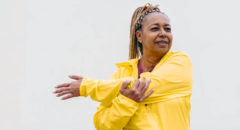
Juvenile Idiopathic Arthritis (JIA) is a type of arthritis that affects children under the age of 16. It is a chronic condition that causes inflammation and pain in the joints and can lead to stiffness, fatigue, and difficulty with daily activities.
JIA can be difficult for children and families to manage, but several coping strategies can help improve quality of life.
RELATED: 6 Signs Your Child is Suffering From Arthritis
1. Early diagnosis and treatment.
Early diagnosis and treatment of JIA are important to help slow the progression of the disease and prevent joint damage. A pediatric rheumatologist is a specialist who is trained to diagnose and treat JIA.
Treatment may include medications to reduce inflammation, physical therapy to improve joint range of motion, and occupational therapy to help children with daily activities.
2. Pain management.
Pain is a common symptom of JIA and can greatly impact a child’s quality of life. Medications can be used to manage pain, but working with a healthcare provider is important to find the right treatment plan.
Non-medication options such as heat therapy, massage, and relaxation techniques can also be helpful.
RELATED: Fun Exercises for Children with JIA
3. Exercise.
Regular exercise is important for children with JIA to maintain joint mobility and flexibility. Physical and occupational therapy can help children with JIA learn safe and appropriate exercises for their condition.
Swimming and biking are particularly beneficial as they are low-impact activities that are easy on the joints.
4. Nutrition.
A healthy diet is important for children with JIA to maintain a healthy weight and to provide the necessary nutrients for growth and development. Children should eat a balanced diet with plenty of fruits, vegetables, lean protein, and whole grains.
5. Support.
Children with JIA and their families can benefit from support from others who are going through similar experiences. Support groups for families of children with JIA can provide a sense of community and a forum for sharing information and coping strategies.
6. Communication.
It is important for children with JIA and their families to communicate openly with healthcare providers, teachers, and other caregivers. This can help ensure that everyone knows the child’s needs and can work together to support them.
7. Adaptive equipment.
Children with JIA may need adaptive equipment such as crutches, canes, or wheelchairs to help them with daily activities. Occupational therapists can help children and families find the right equipment and teach them how to use it properly.
8. Medication management.
Children with JIA may need medications to manage their condition. It’s important for families to work with a healthcare provider to establish a medication schedule and to monitor for any side effects.
9. Balance school and treatment.
Children with JIA must balance school and treatment. Parents and caregivers should work with teachers and school staff to ensure that the child receives the necessary accommodations and support to succeed in school.
10. Allow for flexibility.
JIA is a chronic condition, and symptoms can change from day to day. It is important for families to be flexible and adjust their plans as needed to accommodate any changes in the child’s condition.
Conclusion
In conclusion, Juvenile Idiopathic Arthritis (JIA) is a chronic condition that can greatly impact a child’s quality of life.
Early diagnosis and treatment, pain management, exercise, nutrition, support, communication, adaptive equipment, medication management, balancing school and treatment, and flexibility are key coping strategies to help children and families manage JIA.
It is important for families to work with healthcare providers and other professionals to develop an individualized treatment plan that addresses the child’s unique needs and goals.
Remember, JIA is a chronic condition, but with the right therapy, it can be managed.








